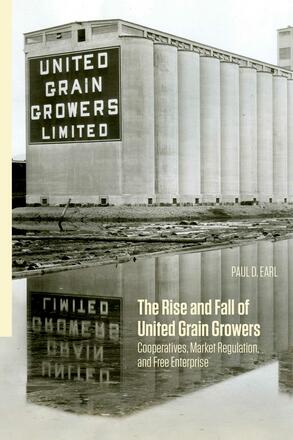
The Rise and Fall of United Grain Growers
Cooperatives, Market Regulation, and Free Enterprise
Description
For much of the twentieth century, United Grain Growers was one of the major forces in Canadian agriculture. Founded in 1906, for much of its history UGG worked to give western farmers a “third way” between the competing poles of cooperatives like the Saskatchewan Wheat Pool and the private sector. At its peak, more than 800 UGG elevators dotted the Canadian prairies and the company had become a part of western Canada’s cultural psyche. By 2001, then known as Agricore United, it was the largest
grain company on the Prairies.
The UGG’s history illuminates many of the intense debates over policy and philosophy that dominated the grain industry. After the Second World War, it would be a key player as the western Canadian grain industry expanded into new international markets. Through the rest of the century, it played an important role in resolving major disputes over regulation and grain transportation policy.
Despite its many innovations, the company’s final decade and eventual demise illustrated the tensions at the heart of the grain industry. In 1997, to finance the rebuilding of its grain elevator network, UGG went public and entered equity markets. While successful at first, this strategy also weakened the company’s cooperative structure. In 2007, it was purchased by Saskatchewan Pool in a hostile takeover. The disappearance of Agricore United marked the end of a century of voluntary farmer-control of the
grain business in western Canada. Paul Earl’s history reveals UGG’s central role in the growth and transformation of the western grain industry at a critical period. With meticulous research supplemented by interviews with many of the key players, he also delves into the details and the debates over the company’s demise.
Reviews
“In The Rise and Fall of United Grain Growers, Paul D. Earl traces the history of the Winnipeg-based co-operative grain marketing company from its origins in 1906 to its fall in a corporate takeover a hundred years later.”
- Lyle Dick